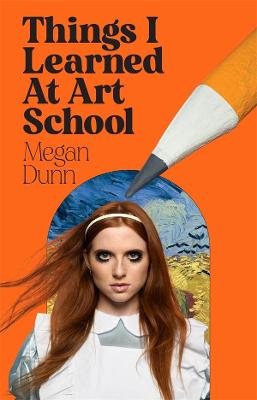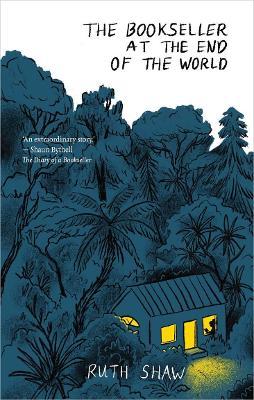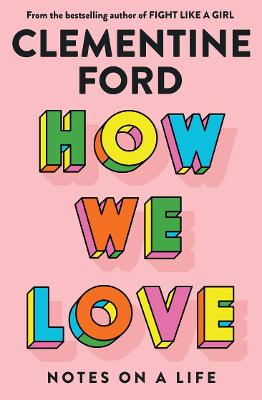What are the differences between truth and memory? And what are the consequences, and for whom, when someone decides to commit their life story to the page? These are the ideas and questions behind this WORD Christchurch session featuring Ruth Shaw(The Bookseller at the End of the World), writer Megan Dunn (Things I Learned at Art School), and writer/broadcaster Clementine Ford (How We Love).
All fair questions of a panel of memoirists.
What I expected from this session, chaired by Victor Rodger, was a discussion of the whys and wherefores, of the difficult decisions and considerations inherent in committing a life to the page. Maybe a bit of discussion along the lines of "if you can't remember, do you just make it up?"
And while those subjects were touched on it went so much deeper than that and to some very raw places for both the panellists and the audience. Victor Rodger did warn us that he would probably cry at some point. What I didn't realise is how much of the time I would be joining him. By the time the audience filed out of concert hall at The Piano I felt like I needed some combination of a cup of tea (or something stronger), a wee nap, a weighted blanket, or some kind of warm, cosy pet bed for a grown up human.
Why so many tears? All 3 panellists have, in their books, written about painful recollections from their lives. In Megan Dunn's book her mother dies near the end, in Clementine Ford's her mother's death is covered in the first chapter. For Ford this death took place many years ago. For Dunn the memory is quite a bit fresher and more raw.
Rodger started out by asking Shaw what her process was for "resurrecting the past - what was that like?" and she remarked that it's something she's always done:
I've always looked back at my life and thought, what a bloody mess!"
And she's had diaries and letters to help so that was easy apart from the "emotional part". She says that she has her dead son, Joshua beside her as she's writing but she does her best for her reader - "What do you [the reader] want to hear about this story?"
She has written all her life but was never brave or courageous enough to be published but was encouraged by her husband and other people, including Kim Hill (my personal reckon is that if Kim Hill thinks you should write a book you probably should).
Rodger directs his next question to Clementine Ford - Was Whitney Houston right? Is the greatest love of all learning to love yourself?
Ford's book, How we love, looks back on all the different forms of love that she's experienced in her life and as a result required her to spend time "surrounded by the different versions of myself" that sort of "formed a circle" as she was writing it. This forced her to confront the self-loathing she's inflicted on these different versions of herself over a lifetime - bringing it back to Shaw's earlier answer about not having the courage to be published - because of all the words of self-doubt we say to ourselves. We say things to ourselves that we would never, ever say to a friend. There's an inclination when we talk about a past version of ourselves to be mocking, to make it clear to one and all that you've "outrun" them. But if you're going to write about yourself you have to actually get to know them and... ask for forgiveness.
They're so forgiving, your past selves, because all they've ever wanted is your love.
I can't explain exactly why but this simple statement hit me where I live and it was basically intermittent eye leakage from me, from this point on. And also the person next to me. And probably the person next to them. Less than 10 minutes in and I'm asking myself if I have tissues in my bag and what's the etiquette of mask removal and nose-blowing in this event?
 Rodger then remarked that " you never know what people are carrying" (in terms of their emotions) and directed this to Dunn to expand on. She talked a little about how difficult it was to write the chapter about her father adn that even though he read it before the book was published and was okay about it his feelings changed a bit when he read it in the context of the rest of the book, which wasn't what she was necessarily expecting. She then circled back to Fords ideas about being kinder to your earlier self as she felt there were definitely parts of her book which are quite mocking in tone because at that point in her life she identified as a "quipper" and someone who was quite hardboiled and quick to mock.
Rodger then remarked that " you never know what people are carrying" (in terms of their emotions) and directed this to Dunn to expand on. She talked a little about how difficult it was to write the chapter about her father adn that even though he read it before the book was published and was okay about it his feelings changed a bit when he read it in the context of the rest of the book, which wasn't what she was necessarily expecting. She then circled back to Fords ideas about being kinder to your earlier self as she felt there were definitely parts of her book which are quite mocking in tone because at that point in her life she identified as a "quipper" and someone who was quite hardboiled and quick to mock.
She then moved on to talking about her uncle who committed suicide when she was 14 years old and how all the adults around her were traumatised by it but that it did really affect her too.
Every death is particular and felt in a particular way.
She leaned in, she said, to the anger that's left behind for a family after a suicide and that though she's clearly done quite a few literary events talking about her book "hardly anyone's asked me about it". Which could be telling of literary festival crowd sensibilities - or perhaps just our deep reluctance to talk about suicide, generally.
Ford is invited to discuss the first chapter of her book which talks about when her mother died at the age of 58 (Ford was 26).
Ford explains that it was 8 months from the time of her mother's diagnosis to her death. At the time she thought 58 was sort of old but "... now that I'm 41 I think f***, that's young". The doctors had said that there was cancer all through her stomach and she couldn't really eat so the suggested course of treatment was a gastric bypass that would give her 3 or 4 more months. Ford and her siblings assumed that this is what would be happening but instead they were called to come home and then told that their mother would not be having the surgery and that they were to say their goodbyes that day and not come back. Their mother did not want them around while she basically starved to death.
Oof.
Ford's reaction was to go outside and cry and wail but she then remembered a conversation they'd had earlier on when she had said to her mother "it's not fair" to which her mother had replied "No, it's not fair... but nothing's fair". And yes, you might wail and shake your fist at the sky and wonder, why you "...but if you listen hard enough a voice will come out of the darkness and say 'why not you?'"
And though she hated it at the time she did come to understand that her mother "could only willingly say goodbye to us once".
Her mother had had a hard life in a lot of ways, with layers of family trauma, and hadn't been supported to live up to her potential. Her mother, Ford says, "lived a small life" but writing about her meant that "thousands of people know who she is and have cried for her".
During this story, the set of Megan Dunn's face is grim and I feel such sympathy for her in that moment.
 Ruth Shaw's relationship with her mother also held trauma. Shaw was raped when she was 17, became pregnant as a result, and was sent away to have the baby. Though her mother had seen the bruises and knew what had happened she and her father did not go to the police and this was something that Shaw was angry about for a long time. When she was nursing her mother before she died they did talk about it and she came to realise how difficult it would have been for them to live in such a small community (Naseby) alongside the families of the boys involved. And when she was dying, her mother also just wanted time with her husband "without a sobbing Ruth on the side".
Ruth Shaw's relationship with her mother also held trauma. Shaw was raped when she was 17, became pregnant as a result, and was sent away to have the baby. Though her mother had seen the bruises and knew what had happened she and her father did not go to the police and this was something that Shaw was angry about for a long time. When she was nursing her mother before she died they did talk about it and she came to realise how difficult it would have been for them to live in such a small community (Naseby) alongside the families of the boys involved. And when she was dying, her mother also just wanted time with her husband "without a sobbing Ruth on the side".
Things have got quite sad by this point so Rodger shifts gears a bit by asking Shaw about her husband, Lance with whom she had something of an "interrupted" courtship.
He originally gave her the ring she wears today when she was 21 but Catholicism scuppered the relationship. Lance was willing to take all the "diabolical" lessons to become a Catholic but the question of how future children would be raised was the sticking point. Lance is husband #4 for Shaw. Rodger quips that she's "... the Elizabeth Taylor of Naseby" and the laugh is something of a relief, to be honest. They took a while to getting back together but Shaw thinks things wouldn't have worked if they had married earlier because she was such "a mess".
Ford is thrilled at this example of satisfying love later on in life and disagrees with the notion that in order for a love to be a great love it has to be found young - "we don't need to find love at 23 and be with them for 60 years in order for it to be a 'great love'". There are all kinds of ways that romantic love happens and even amounts of time that it lasts for - it's not just one thing.
At this point Megan Dunn points out that her mother died single, having wanted desperately to have a partner (in her book there is much pining after a former boyfriend who owned a purple van) and she goes on to explain that on the day her mother died, she hadn't always been lucid but she was again for a while. It was then that Dunn said to her, "I have loved you my whole life" and it's hard to get across the intensity of this statement. There was so much frustration and anguish in it that it was a little shocking, Dunn clenching her fists as she said it. I was a singularly raw moment and I felt humbled by it. I doubt there was a dry eye in the house.
Ford picked up on the inherent sadness of this feeling of unfufilled love and how wrong it was that Dunn's mother had to feel that way. After all, why can't your great love be a friendship rather than a romantic relationship? At which point Ford made it abundantly clear how much love she has for the movie Beaches and you know what? She's not wrong. That movie is a great celebration of female friendship, but also the idea that at the end of your life you can have someone there who could stand up and be a witness to it, someone who could say "I know everything about this person and let me tell you about them" so that in that way you can live on.
From there Rodger moves into some of the recollections from Ford's book, in particular one episode that didn't gel very well with Ford's brand of being "forthright and bulletproof".
 Ford admits to going on a "dating rampage" following the break-up with her son's father and got into a relationship where she made herself "overly available" in which "I could feel myself disappearing..." and it wasn't the other person doing it to her, it was herself. And as this relationship died, she admitted that what she really wanted was for the other person to answer the question "am I pretty?" which is a very vulnerable thing to admit to but despite her public image she feels that she is an open book and a vulnerable person. So this is in opposition to the persona people might ascribe to her of some who is "cold", "humourless" or "scary".
Ford admits to going on a "dating rampage" following the break-up with her son's father and got into a relationship where she made herself "overly available" in which "I could feel myself disappearing..." and it wasn't the other person doing it to her, it was herself. And as this relationship died, she admitted that what she really wanted was for the other person to answer the question "am I pretty?" which is a very vulnerable thing to admit to but despite her public image she feels that she is an open book and a vulnerable person. So this is in opposition to the persona people might ascribe to her of some who is "cold", "humourless" or "scary".
After all this there was only about 5 minutes for audience questions but, honestly, with all the sharing and vulnerability we'd been gifted I didn't feel that the audience was short changed at all.
Were there any consequences for their relationships post-publication?
Shaw says yes, there were. Her sister had objected to some of the content about their grandmother so Shaw had made some changes to accommodate that and was told "thank goodness you haven't ruined the family name". But others had expressed sorrow towards her as they hadn't been aware of all the things that had happened to her.
Ford hasn't had any falling outs, but also says that there's not much in the book about her dad and her step-mother that she'll write after he dies. "I hope that he dies before her so she gets to read it". But there's no urgency to writing it now.
Dunn says she's had someone argue that changing the name of the art school tutor she talks about in her book was "erasing" her and that has given her pause. But this was partly because these parts of the book were based on 20 year old memories that weren't, to her mind, "bonafide". She also didn't have any way to contact the person in question so didn't know what she'd think of any of it.
She also had some feedback from family members about the portions of her book where she's working in the sex industry which to her was just "by the by - just doing the do" but which she can see is "probably quite hard to read as a dad..."
Shaw changed the names of people in her book to protect them, changing her former husbands' names "to protect their now families".
As we filed out of The Piano there was a feeling that we'd all had quite a singular experience, one of vulnerability, and grief, and raw human emotion.
But literary festivals... it's just about books, eh?
Further reading
- Megan Dunn: Things I learned in art school, Tinderbox
- Clementine Ford: How we love
- Ruth Shaw: The Bookseller at the End of the World
- The Bookseller at the End of the World - Stuff, 3 April 2022
WORD Christchurch Information
- Visit our page of WORD 2022 Festival coverage and info
- Visit the WORD Christchurch website
- Follow @wordchch on Twitter
- Like @wordchch on Facebook
- Follow @wordchch on Instagram




Add a comment to: WORD Christchurch 2022: Whose life is it anyway?